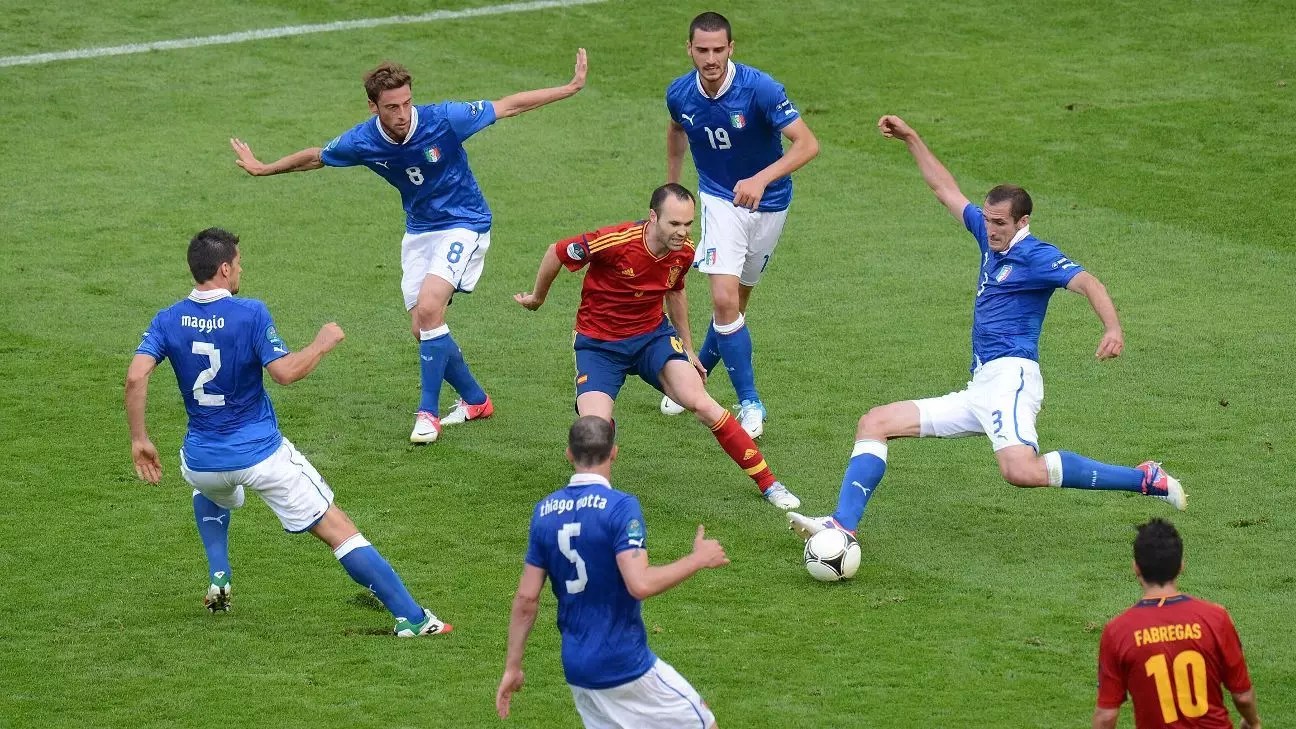Andrés Iniesta, often hailed as one of football’s most iconic midfielders, announced his retirement from the sport recently, concluding an illustrious career that amassed over 1,000 appearances and an impressive haul of trophies. Celebrated for his contributions to both FC Barcelona and the Spanish national team, Iniesta leaves behind a legacy defined by sublime skill, clutch performances, and a profound impact on the game. The 40-year-old, who marked his significant gameplay with defining moments that stirred emotions and shaped football history, has etched his name in the minds of fans and players alike.
From his early days, Iniesta’s talent was undeniable. His journey began with promising displays in youth tournaments, and his MVP award at the celebrated 1996 Brunete Championship set the stage for what was to come. Barcelona swiftly recognized his potential, and by the age of 15, Iniesta was dazzling onlookers during the prestigious Nike Cup. Pep Guardiola, a keen observer, remarked to Xavi Hernandez about this gifted youth, foreshadowing the remarkable impact Iniesta would have on their club and the sport. Such endorsements from established legends only highlighted Iniesta’s potential to revolutionize how midfielders could operate on the pitch.
Two standout moments define Iniesta’s career in ways that transcend accolades. One of the defining occurrences took place at Stamford Bridge in 2009. In the dying moments of a Champions League semifinal against Chelsea, Iniesta scored a stunning equalizer that sent Barcelona through to the final, ultimately leading them to lift the trophy. This pivotal goal not only changed the course of a match but ignited a jubilant response across Catalonia, with notable demographics reflecting a significant baby boom in its aftermath—forever referred to as the “Iniestazo.” The ripple effects of his brilliance showcased how sport could weave itself into the very fabric of society.
However, it was during the 2010 FIFA World Cup that Iniesta cemented his place in football lore. In the final against the Netherlands, it was his calm demeanor and precise finish in the 116th minute that delivered Spain its much-coveted first World Cup triumph. This moment was further enriched by a poignant tribute to his late friend Dani Jarque, reflecting Iniesta’s character, humility, and emotional depth—qualities that endeared him to millions.
Iniesta was not merely defined by his goals; his playmaking ability set him apart as a true maestro on the field. During the 2012 UEFA European Championship, he exhibited a level of control and vision that many would struggle to replicate. His performances for a dominant Spain team, which became the first to win three consecutive major tournaments, highlighted his unique gift of orchestrating the game, earning him the tournament’s MVP accolade. A striking image from that summer showed five Italian players attempting to smother him—an illustration of how Iniesta commanded respect and attention.
The pinnacle of his creative capabilities was depicted during a stunning sequence in the 2015 Champions League quarterfinals against Paris Saint-Germain. Iniesta’s remarkable ability to navigate tight spaces and thread the needle with passes showcased his unparalleled skill set and tactical awareness. This particular play was emblematic of his footballing intellect, guiding Barcelona to a memorable treble victory that season.
As his tenure with Barcelona drew to a close and Iniesta prepared for his exit, the emotion was palpable. His performance in the 2018 Copa del Rey final against Sevilla encapsulated his enduring brilliance. Even close to his retirement, he demonstrated an innate ability and authority on the ball, ending the match with a goal that was a reminiscent showcase of his youthful exuberance. His vocal appreciation from fans, including those at Real Madrid’s Santiago Bernabéu, exemplified how transcendent his talent was, uniting supporters across club divides.
Though Iniesta’s career has concluded, his contribution to football, exemplified through stunning plays such as “La Croqueta,” expands beyond statistics. His finesse and elegance marked a significant era for both Barcelona and the Spanish national team. Former teammates and rivals alike express admiration for a figure whose influence reverberates throughout the game. As football fans celebrate the career of Andrés Iniesta, they do so not merely for a player but for a symbol of grace, passion, and unyielding dedication to a beautiful sport.


Leave a Reply